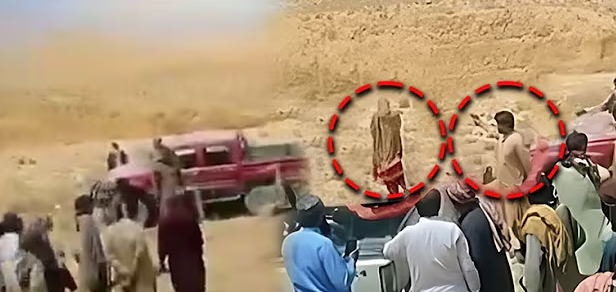A disturbing video showing a woman and man being executed in Pakistan’s Balochistan province has ignited widespread anger, forcing authorities to act—but only after the footage triggered public outrage online.
The victims, identified as Bano Bibi and Ehsan Ullah, were accused of having an extramarital affair. According to local sources, a tribal jirga (an unofficial council with no legal standing) allegedly ordered their execution in the name of “honor.” In the footage, which circulated rapidly on social media, both were seen being shot at close range.
The murders reportedly took place weeks before the video gained traction. But it wasn’t until the public began demanding answers online that local officials moved in. Authorities have since arrested several individuals believed to be involved in the killings and the unlawful tribal order.
Justice Triggered by Viral Video, Not Law
The case highlights a troubling pattern in Pakistan: justice often only follows when crimes generate enough public pressure. “Had the video not gone viral, it’s likely this case would’ve been buried, like so many others,” said a human rights lawyer based in Quetta.
Despite laws criminalizing so-called “honor” killings, the practice persists, especially in rural areas where traditional councils wield informal power and often operate outside the legal system. Activists argue that the state’s failure to dismantle such parallel systems allows these atrocities to continue.
A Deadly Tradition That Won’t Die Easily
Honor killings—murders carried out to preserve family or tribal “honor”—are tragically common in parts of Pakistan, particularly in conservative, remote regions. Each year, hundreds fall victim to such killings, though many cases go unreported or are quietly settled out of court.
In 2016, Pakistan passed a law to close legal loopholes that previously allowed families to forgive perpetrators. But enforcement remains inconsistent, and cultural norms still silence many victims before they can even speak.
A Reckoning, or Another Forgotten Case?
For now, Bano Bibi and Ehsan Ullah’s names have become a symbol of resistance against an outdated and brutal tradition. But whether their deaths lead to lasting legal reform—or simply become another fleeting headline—remains to be seen.
The country stands at a crossroads: either confront the shadow systems that still control justice in many regions, or continue to rely on viral outrage to spark accountability.

